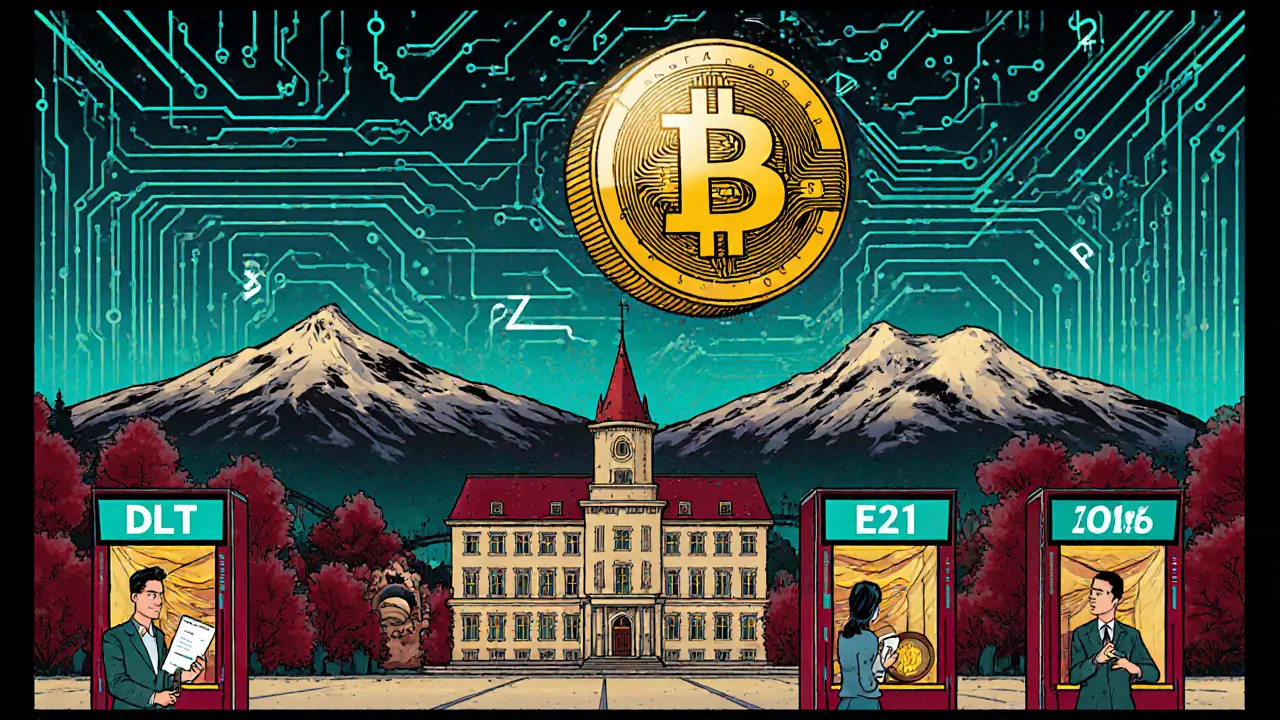DLT Act Switzerland: What It Means for Crypto Tokens and Blockchain Firms
When the DLT Act Switzerland, a 2020 Swiss law that legally recognizes blockchain-based assets and enables tokenized securities. Also known as the Federal Act on the Adaptation of Federal Law to Developments in Distributed Ledger Technology, it created the first clear legal framework in Europe for digital assets. Before this law, crypto tokens existed in a gray zone—neither fully recognized as securities nor dismissed as mere data. The DLT Act changed that by giving them legal standing as tradable assets on distributed ledgers, letting companies issue and transfer tokens without needing traditional banking infrastructure.
It doesn’t just cover tokens. The law also defines DLT securities, digital representations of ownership or debt that can be traded on blockchain platforms. Also known as tokenized securities, they can represent shares, bonds, or even real estate—without paper certificates. This opened the door for Swiss-based exchanges and custody providers to apply for a DLT license, a special permit allowing firms to operate blockchain-based trading and settlement systems under Swiss financial supervision. Companies like Sygnum and SEBA Bank got these licenses, becoming the first regulated crypto banks in Europe. The law also clarified how private keys are treated legally—no longer just passwords, but legally binding access rights.
The DLT Act Switzerland didn’t just help businesses. It gave investors more protection. Token issuers now must disclose key details like token utility, rights, and risks. That’s why you’ll see more projects referencing Swiss law when launching tokens—it signals compliance and seriousness. It also created a bridge between traditional finance and crypto. Stock exchanges can now list tokenized assets. Hedge funds can hold them in regulated portfolios. And blockchain projects can build on Swiss infrastructure without fearing sudden legal crackdowns.
But it’s not magic. The DLT Act doesn’t override EU rules. Swiss firms still need to comply with AML/KYC when dealing with international clients. And while it’s great for tokens tied to real value—like equity or revenue shares—it doesn’t protect meme coins or empty utility tokens. That’s why you’ll find posts here about token utility, blockchain security, and crypto exchange compliance—they all tie back to the real-world impact of laws like this.
Below, you’ll find real examples of how this law shaped crypto projects, exchange operations, and investor behavior. From HSM key management to sanctions compliance, every post connects to the legal foundation that makes modern crypto possible in Switzerland—and why it matters everywhere else too.
Zug, Switzerland, known as Crypto Valley, offers the world's most progressive crypto regulations in 2025-no capital gains tax, legal Bitcoin payments, and clear DLT laws. Here's how it works.

